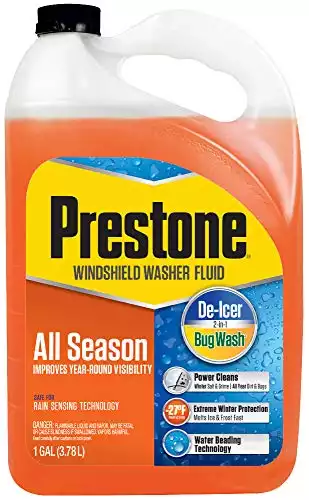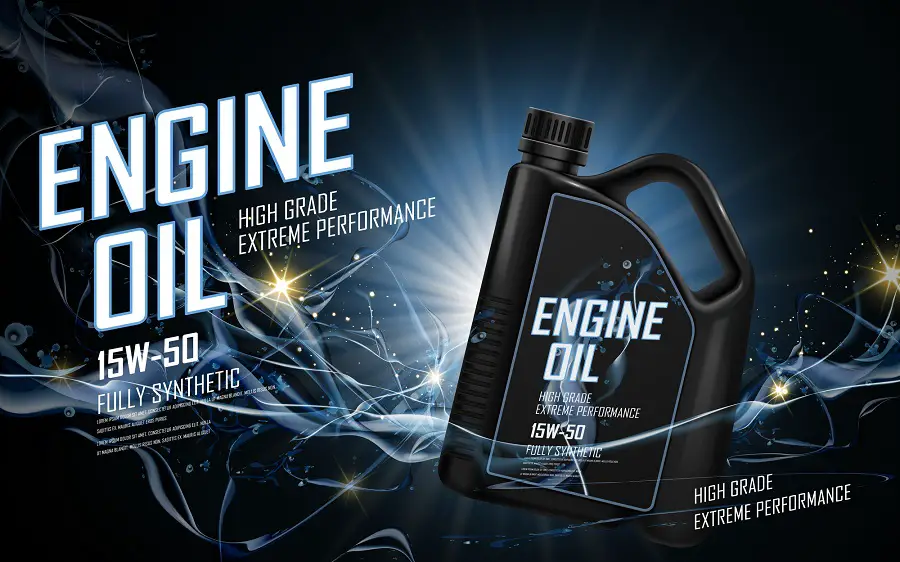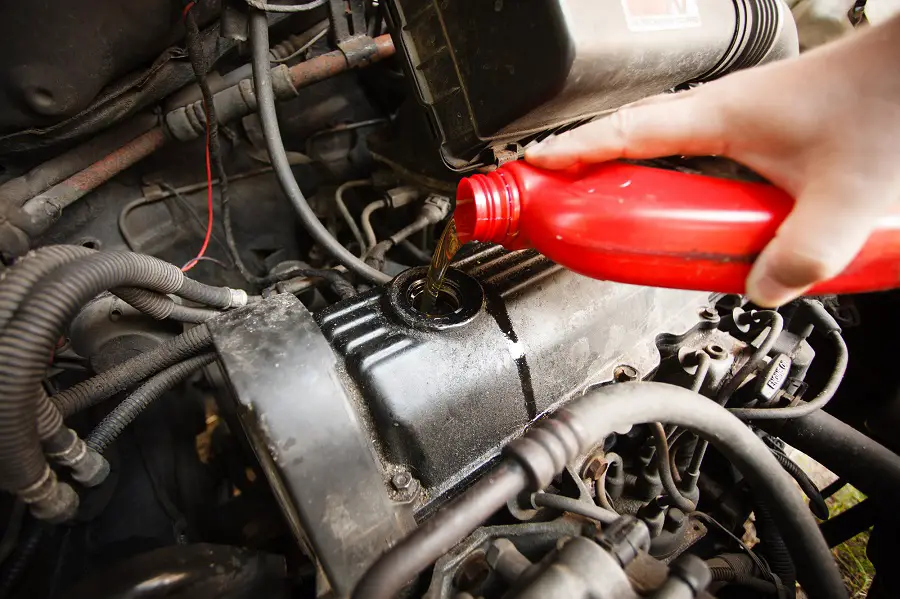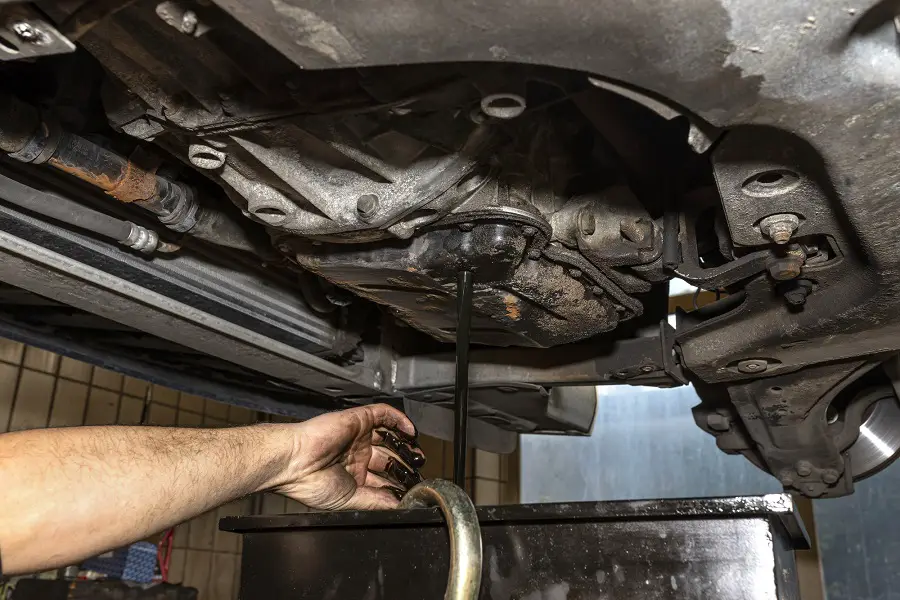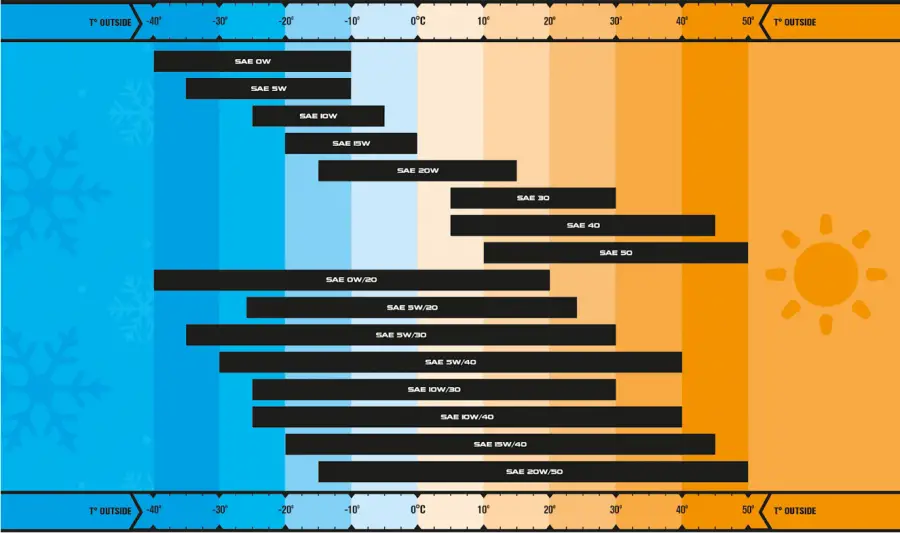You probably rarely empty an entire bottle of windshield wiper fluid when filling the reservoir tank in your vehicle. While you can store the unused fluid in your garage, you might wonder: does windshield washer fluid expire?
Windshield wiper fluid takes a long time to expire and requires a few specific conditions to do so. Even if the fluid has an expiration date printed on the bottle, it typically remains acceptable to use for years beyond that date.
Let’s take a look at everything you need to know about windshield washer fluid expiration dates.
The Importance of Correct Storage
How you store fluid makes a big difference. Keeping the wiper fluid in the unopened, original container won’t lose any significant effectiveness.
Wiper fluid also retains effectiveness after opening the container, as long as you keep the container closed during storage. You can open the bottle, use some of it, and store the rest without any problem. You can even use it after its expiration date.

How Do I Know if My Windshield Wiper Fluid Has Expired?
Fortunately, it’s easy to see when wiper fluid has expired. Expired fluid will have lumps in it, especially if the expiration date on the bottle has passed. You don’t want to put the fluid in your car if it has lumps.
You could clog or damage the windshield wiper system if you put expired washer fluid in your car. However, the most likely outcome is that the wiper fluid won’t work effectively and will cover the windshield unevenly or poorly.
Can Windshield Washer Fluid Evaporate?
Does windshield washer fluid expire quicker based on the surrounding temperature? No, but warmer temperatures do have some influence on its properties.
Windshield wiper fluid consists of water, methanol, and, in some cases, ethylene glycol. If the temperature is too high, windshield fluid can potentially evaporate.
Methanol evaporates at room temperature. When added to washer fluid, it’s formulated in such a way as to remain intact, though small amounts of it can still evaporate.
However, significant evaporation requires specific, rare conditions. The temperature must be high, and the fluid must be in an open container. If the fluid is in a closed container, even if it evaporates temporarily, it has nowhere to dissipate.
Note that significant loss due to evaporation is rare. If the fluid levels in your vehicle’s reservoir are dropping, evaporation isn’t the cause. Instead, the system likely has a leak or other fault.
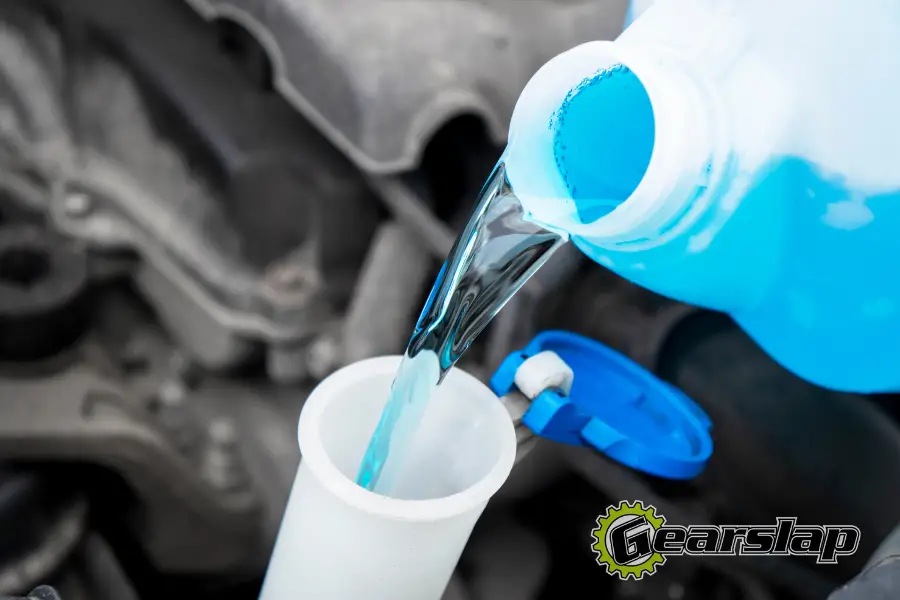
When Should You Change the Washer Fluid in Your Car?
Most people don’t need to store wiper fluid in their garage for months and years, especially in the spring and winter, when the weather is wet and snowy.
You’re typically better off “storing” wiper fluid in your vehicle’s reservoir than leaving it to sit on a shelf.
Check the fluid level at least once a month. You’ll want to add more fluid if the reservoir is one-quarter full or lower. Aside from checking it monthly, you’ll also want to change the entire reservoir seasonally.
For example, many people choose to use a bug wash in the summer, which features soap to help clean away any remnants of bugs that hit the windshield. However, once winter arrives, you’ll find that a deicing wiper fluid is the better (and safer) choice.
Quick Tip: Changing your windshield wiper fluid isn’t the only way to winterize your car. You’ll also want to add winter-appropriate motor oil.
How to Dispose of Wiper Fluid Properly
Methanol is a poisonous substance, which is why windshield wiper fluid poses dangers to people, animals, and the environment. You’ll want to avoid ingesting it, breathing it in, and having it touch your skin. Also, pay special attention that your pets don’t drink it.
Never pour wiper fluid down the drain. Water and detergent are normally fine to wash down your home drains, but methanol isn’t. Pouring any product with methanol down the drain harms wildlife and the environment. Plus, many cities and states have regulations prohibiting it.
The exact disposal method you’ll need to use will depend on the regulations established by your local government. Most cities offer a hazardous waste disposal facility where you can drop off items such as windshield washer fluid.
Fortunately, because wiper fluid takes such a long time to expire, you should have no problem using it in your vehicle, so disposal might not be an issue you’ll need to worry about.
Does Windshield Washer Fluid Freeze?
Does windshield washer fluid expire? Rarely, but there are more common ways it can potentially fail. Certain types of fluid can freeze, meaning it won’t spray across the windshield.
Many types of windshield washer fluid use a mixture of one part antifreeze and 10 parts water. Unfortunately, with such a high percentage of water, the mixture will freeze when the temperature drops below 32 degrees.
During the winter months, you’ll need to use a winter blend of washer fluid, which has a balanced ratio of one part water and one part antifreeze.

